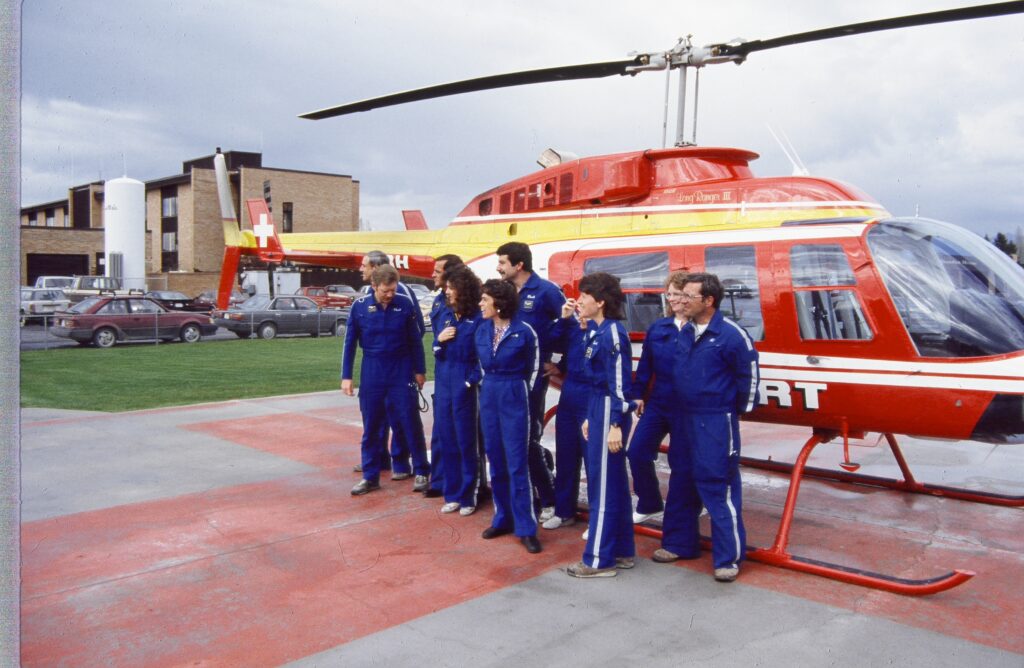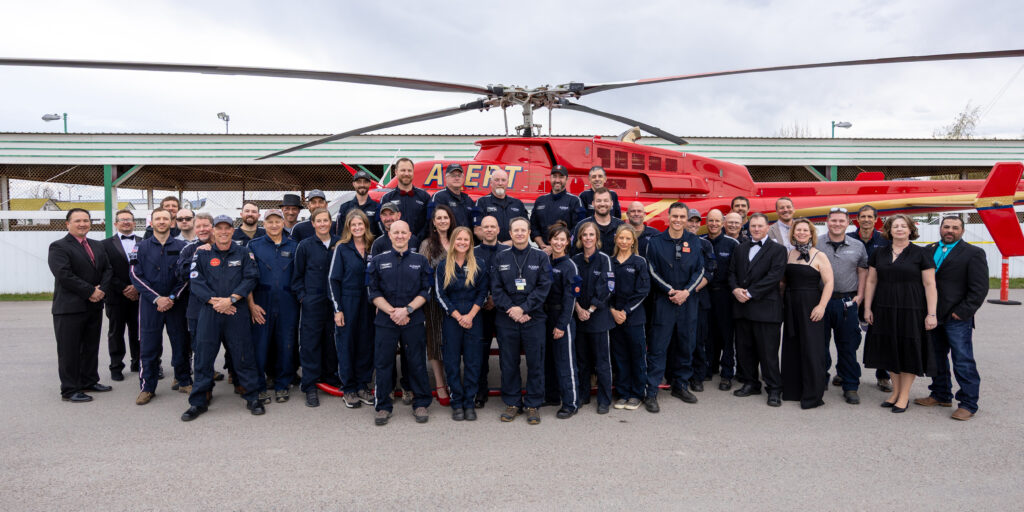September 25 marks the 50th anniversary of Logan Health’s ALERT program
The first rural hospital-based air ambulance program in the country was born out of tragedy 50 years ago near the Hungry Horse Reservoir. In July 1975, a 27-year-old logger named Dennis Buck was severely injured in a workplace accident. Desperate to get him medical attention, his crew worked with a nearby forest service helicopter to form a makeshift rescue operation. Unfortunately, Dennis died before he could reach the hospital, an all-too-common occurrence in the logging industry at the time.
 Recognizing the need for change, Clyde Smith, co-founder of the Montana Logging Association, put his own logging business up as collateral and worked with Kalispell General Hospital, now Logan Health Medical Center, to form an air-ambulance program that could provide quick access to rural workers across northwest Montana.
Recognizing the need for change, Clyde Smith, co-founder of the Montana Logging Association, put his own logging business up as collateral and worked with Kalispell General Hospital, now Logan Health Medical Center, to form an air-ambulance program that could provide quick access to rural workers across northwest Montana.
Today, 50 years later, ALERT has evolved into a comprehensive emergency medical transport program. In addition to more than 21,000 helicopter flights in its history, the service now includes a fixed-wing aircraft transport service, a specialty pediatric and neonatal flight nurse team and dedicated ground ambulances — all working together to provide lifesaving care across the region.
Having a program like ALERT in a community of this size is no small feat. Air ambulance services are rare in rural locations because of the high operational costs to maintain them. Logan Health has largely subsidized the program since the beginning, but the community has consistently stepped up to do its part, as well. Since 1977, the annual ALERT Banquet has been held to raise money for the program and to help ensure that this service stays in the Flathead Valley. Since 2000, more than $10 million has been donated to enhance the program.
ALERT has become an essential resource for the entire region. In a place as remote as northwest Montana, quick access to advanced medical care can make all the difference. Today, the program plays a critical role in rescuing recreators in nearby Glacier National Park and responding to severe medical emergencies throughout the region. Whether it’s a remote backcountry injury or a life-threatening condition in a rural community, ALERT remains ready to provide rapid access to hospital care when every minute matters.
50 years after its founding, the ALERT mission remains the same. What began as a response to a local tragedy has grown into a lifeline for the entire region — one that continues to evolve to meet the needs of northwest Montana. With the continued support of Logan Health and the community, ALERT stands ready to answer every call for help, no matter how remote.
To help ensure this life-saving program continues for generations to come, visit logan.org/donate or call the Logan Health Foundation at (406) 751-6930.
Here’s to the next 50 years of service, dedication and lives saved.

